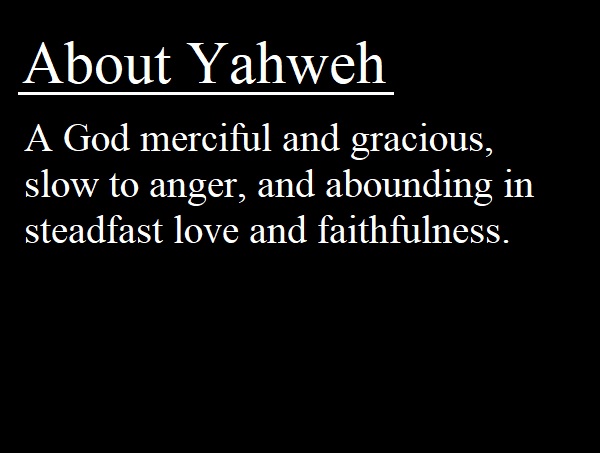

His Repeated Bio
By Anthony Casperson
6-8-24
While sending out book proposals for the novel I’ve written, one of the parts that I find the most difficult to fill out is the “About the author” section. It’s not that I don’t know myself—or at least, facts about my life that could be told. Rather, I find it difficult to condense all of my life and experiences down to a single paragraph.
What’s the most important? How have the circumstances of my life so far shaped me into this person that I am? And how do I formulate it all down to something short and pity?
Most of us have written small biographies of ourselves, given the prevalence of such sections for our social media accounts. The words could never fully describe everything that we are. But what we place in them reveals what we believe to be the most important, because those words will often be repeated as the primary introduction to us beyond our name. Even becoming synonymous with it.
As we begin this summer series of blogs, we’ll take a look at an aspect of God that I believe would be his choice of words in his bio. Not the false human dichotomization of the “God of the Old Testament” and the “God of the New Testament” that so easily pervades western culture’s perspective. But what God himself would make synonymous with his name.
And we know that because God does this very thing in Exodus 34, the first time we hear the oft-repeated refrain of description.
In the previous chapter, Moses had asked God for two things. One, for the forgiveness of the sinful people of Israel who had already broken down their relationship with God—even though they’d hardly even been a nation devoted to him for long. And two, that Moses might witness God’s glory.
After Moses prepared for such an event—because coming face-to-face with the full glory of the Lord would strike a sinner down—God revealed his back to Moses and spoke to him of the name of Yahweh. His name is his glory.
The words God spoke in that moment—his personally filled out bio—are found in Ex. 34:6-7. It begins with the refrain around which our series is based. He is the God who is “merciful and gracious, slow to anger, and abounding in steadfast love and faithfulness.”
Quite the surprise for those expecting to find only an angry and judgmental “God of the OT.”
His name is synonymous with compassion and the bestowal of undeserved gifts. The fuse to his anger is exceedingly long. And there’s a richness to his covenantal love/loyalty/kindness which can be witnessed through his faithfulness to the truth.
We’ll dive deeper into parts of this refrain as the weeks go on. But with this introduction to the repeated bio, we can recontextualize the incorrect view of God being judgmental in the OT. And witness the truth of his judgement. Because his covenantal loyalty is spoken of in the context of his role as divine judge. (Remember the first part of Moses’ request, forgiveness for the sinful Israelite nation.)
Verse 7 repeats the word for God’s covenantal loyalty—his “steadfast love”—saying that it’s not just for a select few. His loving loyalty is for thousands—or as we might say, for millions or billions. While the nation of Israel might have been the direct benefactors of his covenant loyalty at the time, they were to be the ones through whom his ultimate plan of salvation flowed. The people from whom Jesus came. Thus, the lovingkindness granted to them was meant for all.
As well, God’s steadfast love is shown through his forgiveness, which is exactly what Moses had asked for the people of Israel. Yahweh forgives every “iniquity and transgression and sin.” Every conscious and intentional offense. Every act of rebellion that contests God’s right to command. And every moment where our attempts miss the mark that he delineates.
There is no sin that he won’t forgive. As long as we repent and rejoin his definition of what is right, righteous, and holy.
See, this is where we take the wrong perspective with the rest of the verse. When God says that he will “by no means clear the guilty,” he’s not saying that he’ll lift his nose in judgement and have nothing to do with we who sin. It can’t mean that, because he’d just admitted to being the kind of God who forgives every type of sin.
Those few words could also be translated as “by no means will he acquit.” God won’t let any sin slide without the proper payment for that sin and without repentance. Forgiveness will come for any who properly seek it. But it won’t be an acquittal that denies the guilt.
Rather, it’s forgiveness that’s been paid for (through the cross of Jesus). Admission of guilt and payment to reconcile the relational bonds that had been broken. And it’s given to those who agree with God’s standard of holiness—even when we fail to live up to the same standard later and require a heart of repentance again.
Loving and faithful Yahweh may be, but he is not one who ignorantly pardons at his own whim. To be eternally loyal and stand in truth, he must provide forgiveness only to those who truly seek it. To give freedom only after we have admitted to being in sin’s chains.
And what about the rest? What about the people who refuse the offer of forgiveness? Well, the rest of verse 7 tells us.
Again, our tendency of reading the words “visiting the iniquity of the fathers on the children and the children's children, to the third and the fourth generation” makes it look like their place is to be judged. Harshly. And not just the people who sinned, but also their children, grandchildren, and great-grandchildren. As if God will just hate and despise people who weren’t even the ones who did the sin.
However, we misunderstand what God’s saying. That word for “visiting” doesn’t mean anything in the direction of “pouring wrath down on.” No, it’s often used in the context of a superior attending to their subordinates. And over half of the uses of this verb in the bible show a positive sense where the attention is for the benefit of the one being “visited.”
The idea of grandchildren being punished for the sins of their grandparents isn’t the point here. Instead, we witness the caring, loyal, and faithful God returning generation after generation to see if one from this lineage might break the cycle of sin. To see if one generation finally repents and returns to the relationship with God that he desires to have with them.
A grumpy old judgmental lawmaker could care less about what the grandchild of a sinner did. Such a miserable excuse for a deity would more than likely smack around a member of that lineage, should they ever seek reconciliation.
But the merciful and gracious God who is slow to anger and stands rich in covenantal loyalty and faithfulness? He’d be the one to throw arms wide open for the prodigals. Even going so far as to seek out the members of the family, generation after generation. Despite the previous generations’ refusal of his loving gift.
That God would be active in the reconciliation process. The one who pursues. The one who does the hardest work of bringing forgiveness about. The one willing to die on a cross for us.
When Yahweh proclaims his name—when we read God’s bio—it’s compassion and grace and patience and relational loyalty and faithfulness in truth. All of which leads us to the one willing to forgive so much that seeks us out in order that we can have right relationship with him. If we accept it. If we seek forgiveness and repent.
This is the God of the bible. Both testaments. The righteous Judge who provides the way to right relationship with him. And pursues for generations as he waits for us to repent.

